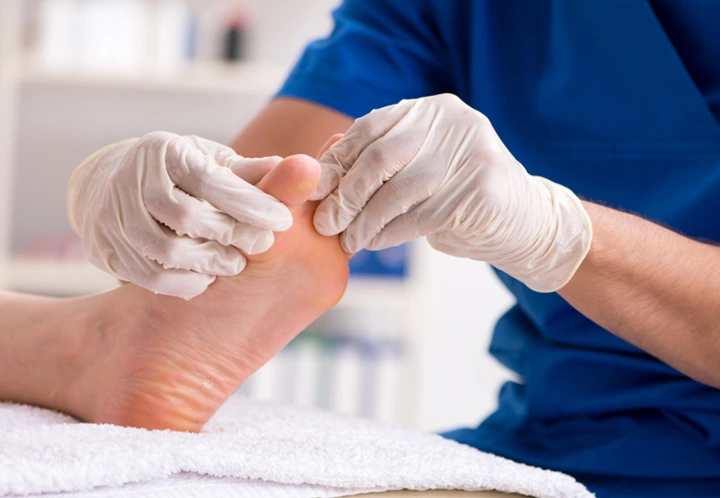Neuroma Pain Treatment in NYC

WHAT IS A NEUROMA?
Do you regularly have severe foot pain, numbness, or tingling, and often feel like you need to take off your shoe and rub the bottom of your foot? If you answered yes, then you may have a neuroma. A neuroma is a thickening of nerve tissue that may develop in various parts of the body, especially in the feet. An untreated neuroma can eventually lead to permanent nerve damage, so if you suspect that you have developed this condition, it’s best to address it sooner rather than later. However, there’s no reason to fear; treatment for a neuroma in New York, NY at Millennium Podiatry can be easy and highly effective to reduce even the most severe neuroma pain and symptoms.
To learn more about nonsurgical and surgical neuroma treatment options, contact our Park Avenue office today to schedule a private consultation with Dr. Suzanne Levine. Or schedule right now by scrolling down to the ‘Make an Appointment’ section below! If you aren’t sure what is going on with your foot – don’t worry. Just select ‘General Consultation’, and you can discuss it privately with Dr. Levine during your appointment.
What CAUSES a NEUROMA?
what are the SYMPTOMS OF a NEUROMA?
- Foot pain
- Tingling, burning, or numbness
- A feeling that something is inside the ball of the foot
- A feeling that something is in the shoe or a sock is bunched up
– Dianna Lynn / Nov 16, 2020
How does a MORTON’S NEUROMA progress?
The progression of Morton’s neuroma often follows this pattern:
- Gradual symptoms. At first, they occur only occasionally and sporadic when wearing narrow-toed shoes or performing certain aggravating activities.
- May have temporary relief once shoes have been removed, after massaging the foot, or by avoiding aggravating shoes or activities.
- Symptoms persist over several weeks at a time.
- Pain and symptoms may become more intense as the neuroma enlarges and the temporary changes in the nerve become permanent.
What are NONSURGICAL TREATMENTs for NEUROMA?
- Padding – Properly placed padding can lessen the pressure on the nerve, decreasing pain and repetitive injury to the nerve.
- Icing – Placing an ice pack on the affected area helps reduce swelling.
- Orthotic devices – Custom orthotic devices provided by your foot and ankle surgeon provide the support needed to reduce pressure and compression on the nerve.
- Activity modifications – Activities that put repetitive pressure on the neuroma should be avoided until the condition improves.
- Shoe modifications – Wear shoes with a wide-toe box and avoid narrow-toed shoes or shoes with high heels.
- Medications – Oral nonsteroidal anti-inflammatory drugs (NSAIDs), such as ibuprofen, may be recommended to reduce pain and inflammation.
- Injection therapy – Treatment may include injections of cortisone, local anesthetics, or other agents.
WHEN IS SURGERY NEEDED FOR NEUROMA?
Related Procedures
*Individual results are not guaranteed and may vary from person to person. Images may contain models.
Related Procedures
*Individual results are not guaranteed and may vary from person to person. Images may contain models.





















